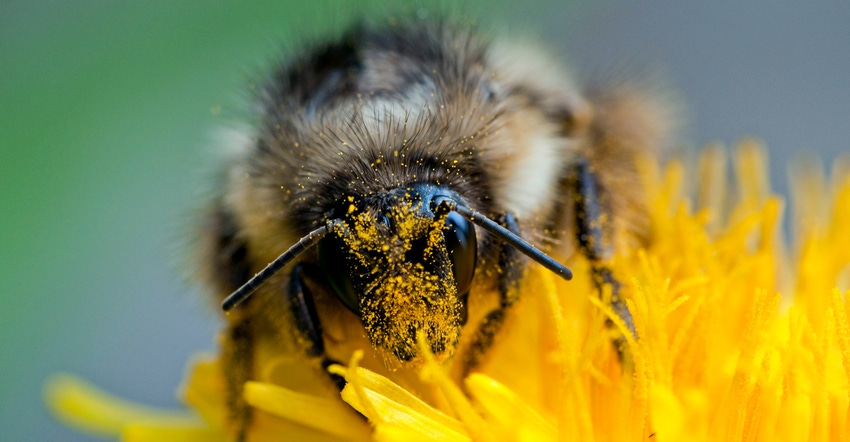October 25, 2022

Missouri’s corn and soybean farmers can once again earn biodiversity credits by expanding pollinator habitats as part of the Ecosystem Services Market Consortium national ecosystem services market program.
Last year, the average payment was $105 per acre for qualifying enrolled land. The two-year pilot project began in November 2021 and continues through 2023. It is a collaborative partnership with conservation stewards, the Missouri Soybean Merchandising Council, Missouri Corn Merchandising Council, Missouri Department of Conservation (MDC), MFA Inc., Pheasants Forever/Quail Forever and ESMC.
This program is a way for corn and soybean farmers to create extra income on unproductive acres on their farm, all while providing crucial habitat for beneficial native pollinators and other wildlife, says Brady Lichtenberg, conservation programs manager for MSMC.
“Missouri Soybeans is excited to offer farmers the opportunity to participate in a voluntary private market program designed to help improve the land and wildlife habitat for future generations,” he says.
Getting biodiversity credits
Missouri farmers working to create or enhance pollinator habitat within existing or new field borders, buffers, waterways, or on other nonproductive agricultural grounds are eligible. Once credits are quantified and verified, ESMC makes the credits available for purchase to interested buyers.
The biodiversity pilot project is the latest in a portfolio of more than 15 projects ESMC launched to test and refine its market program. The pilots test ESMC’s processes for credit generation and sales, and ensure all other program aspects are operational and meet grower and buyer needs.
“Our members are seeking opportunities to credibly demonstrate increased biodiversity outcomes in their agricultural supply chains,” says Debbie Reed, ESMC executive director.. “We are excited by the interest from producers, producer organizations and buyers looking for credible biodiversity impacts from our market program. Based on the results of this project in Missouri, we will increase opportunities for ESMC’s members to invest in biodiversity in agricultural lands throughout the country.”
This is the last year of this biodiversity pilot, with only one year of commitment from farmers willing to participate. Incentive payments will be offered to interested farmers to offset initial costs and keep this a low-risk opportunity.
How enrollment works
There are no minimum acreage limits, although it is recommended that the farmer enrolls one continuous acre across the set of fields. Farmers can choose to phase in more acres over time.
During the Missouri biodiversity pilot, there will be a limited number of total acres that can be enrolled. In the pilot project, farmer contracts with ESMC are for the length of the two-year project. At the conclusion of the pilot, farmers may have the option to roll into either a five- or a 10-year contract.
There is no cost to enroll in the pilot.
Benefits of the program
Corn and soybeans are the most widely grown crops in North America. While not essential to corn and soybean production, pollinators such as native bees commonly forage in these fields. As more farmers continue to adopt precision technology to better use productive acres, information from the biodiversity pilot project can help make informed decisions on land management in less-productive areas.
“Creating healthy habitat for pollinators benefits people, crop production, soils, water and wildlife,” says Jason Jensen, MDC community private lands field chief. “By working with like-minded partners and producers, we all achieve the goal of profitable farming through sustainable conservation practices. The biodiversity pilot allows producers to increase conservation practices on their working lands with relatively little investment or risk.”
Missouri farmers interested in learning more about the biodiversity project and creating pollinator-friendly landscapes are encouraged to visit mocarbonpilot.com or call 573-635-3819.
Source: Missouri Soybean Merchandising Council
You May Also Like




